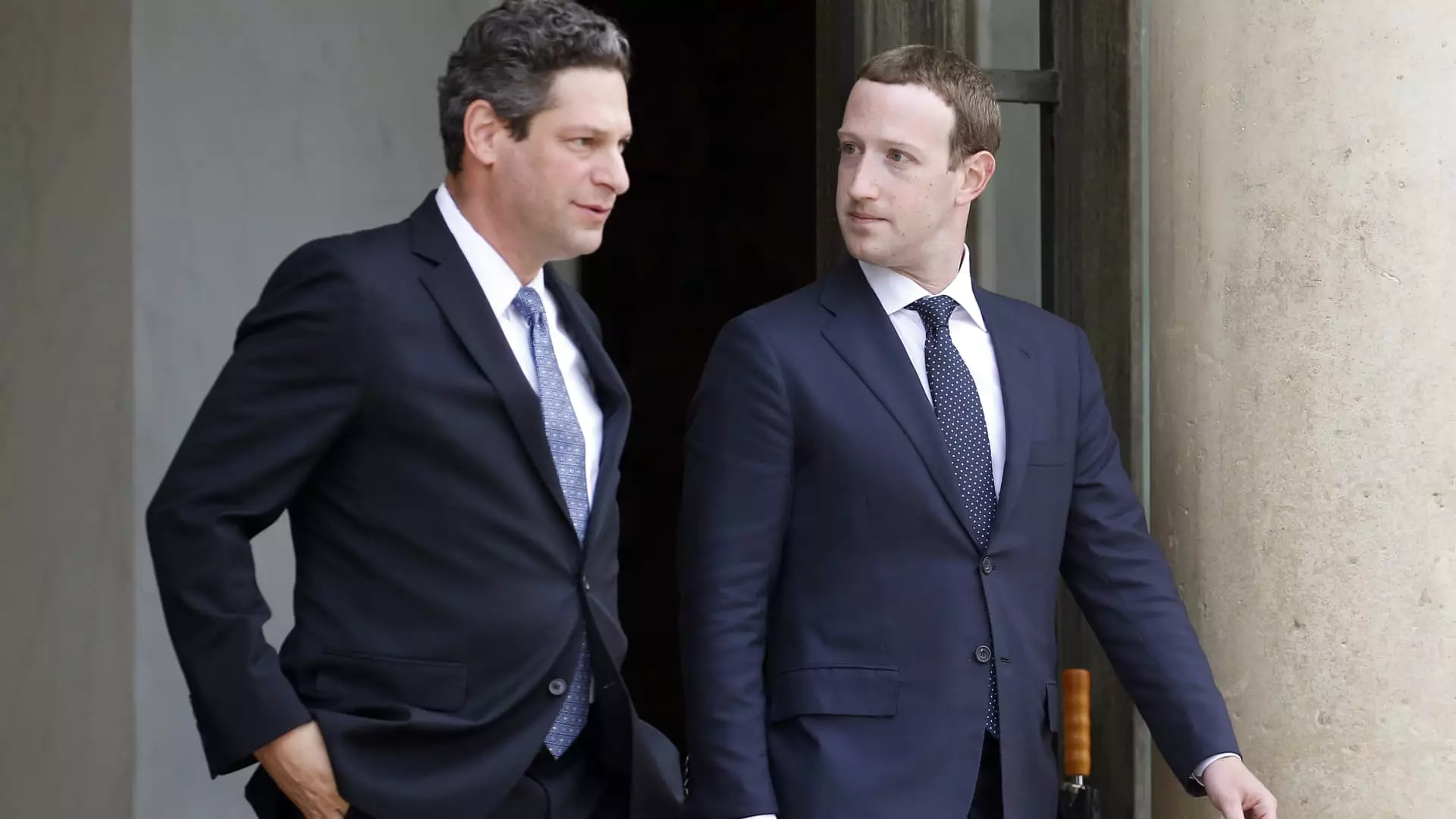The recent leadership changes at Meta Platforms Inc., the parent company of Facebook, mark a significant shift in its approach to global affairs during a turbulent political landscape. With the replacement of Nick Clegg, the outgoing President of Global Affairs, by Joel Kaplan, a seasoned policy veteran and former Republican staffer, it raises questions about the company’s trajectory under the looming influence of a new U.S. administration. This article delves into the implications of this transition and what it means for Meta’s future.
Meta’s decision to replace Clegg with Kaplan comes at a crucial time as the tech giant must navigate the complexities of a new political environment following the election of Donald Trump. With only a few weeks before the inauguration, the company is clearly positioning itself to align closer with the incoming administration. Kaplan’s reappointment is indicative of a broader strategy to foster relationships within the political sphere, particularly given his past ties to Republican leadership. This transition highlights Meta’s understanding that active engagement with policymakers is essential in addressing the myriad regulatory pressures facing the tech industry.
Clegg, who previously served as the Deputy Prime Minister in the UK, was instrumental in guiding Meta through numerous controversies and challenges during his tenure. His resignation, particularly at the onset of the year, is framed as a personal decision but also hints at the company’s need for a more politically connected figurehead as it steps into a period of uncertainty. Under Kaplan’s leadership, it is anticipated that Meta will become more assertive in its lobbying efforts and policy strategies.
Kaplan’s Background and the Challenges Ahead
Joel Kaplan brings a wealth of experience to his new role, having not only served in the George W. Bush administration but also held significant positions within Meta itself. Kaplan’s familiarity with the company’s operations, combined with his political experience, suggests he may adeptly navigate the challenges posed by both domestic and international stakeholders. Notably, Kaplan’s previous attendance at events with prominent Republican figures may empower him to leverage vital connections as Meta faces increased scrutiny from Congress and regulators.
Despite his credentials, Kaplan’s appointment does not come without controversy. His prior associations, including his friendship with Supreme Court Justice Brett Kavanaugh, have stirred debate about political biases within Meta’s leadership. As the tech industry grapples with transparency and accountability, Kaplan will need to address public perception while ensuring that Meta’s messaging aligns with broader societal interests. The balance between corporate objectives and public trust will be critical in determining how effectively he leads in this new role.
The departure of Nick Clegg leaves behind a complex legacy characterized by both achievements and controversies. During his tenure, he managed to steer Meta through some of the most challenging episodes in recent company history, including the notorious Cambridge Analytica scandal, which raised alarms about data privacy and the ethical ramifications of social media’s influence on democratic processes. His efforts not only defined Meta’s global policies but also shaped regulatory discussions surrounding big tech’s responsibilities.
Clegg’s acknowledgement of the evolving relationship between technology and societal pressures serves as a reminder of the ongoing dialogue necessary for constructive engagement with lawmakers. His insights into the dynamics of governance and regulation can inform Kaplan’s approach as he takes the reins.
The transition from Clegg to Kaplan signals not just a change in personnel but a strategic pivot as Meta gears up to tackle regulatory scrutiny under a new political regime. While Kaplan’s appointment is designed to bolster the company’s political acumen, it remains to be seen how effectively he can craft policies that embrace transparency and ethics in a space fraught with skepticism.
As Meta continues to navigate the complexities of global affairs, the dual challenge of maintaining a positive public image while managing government expectations will undoubtedly define Kaplan’s tenure. The evolving landscape of social media regulation promises to put Meta, and its new Chief Global Affairs Officer, to the test as they seek to balance innovation, accountability, and public trust in the years to come.

